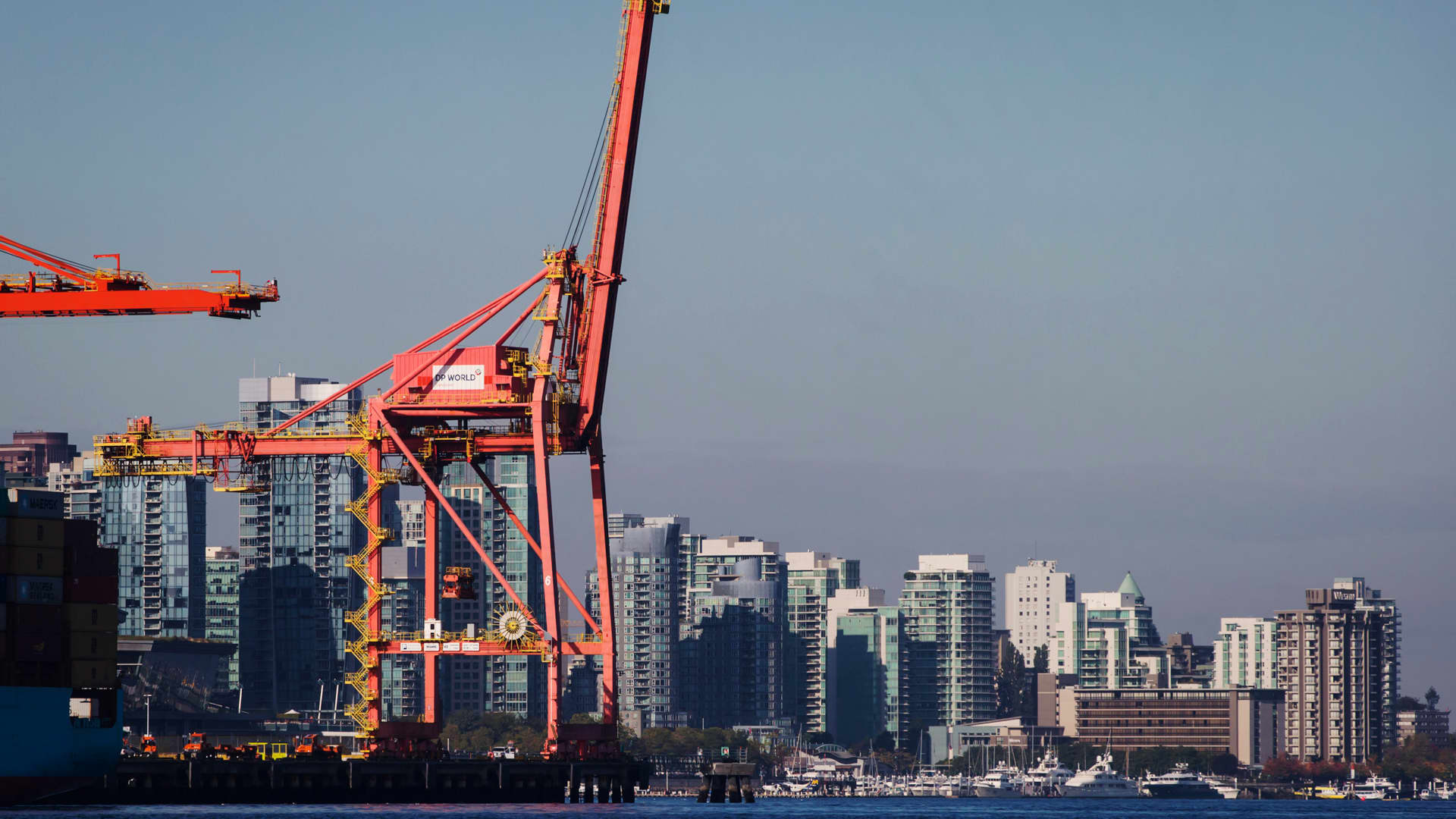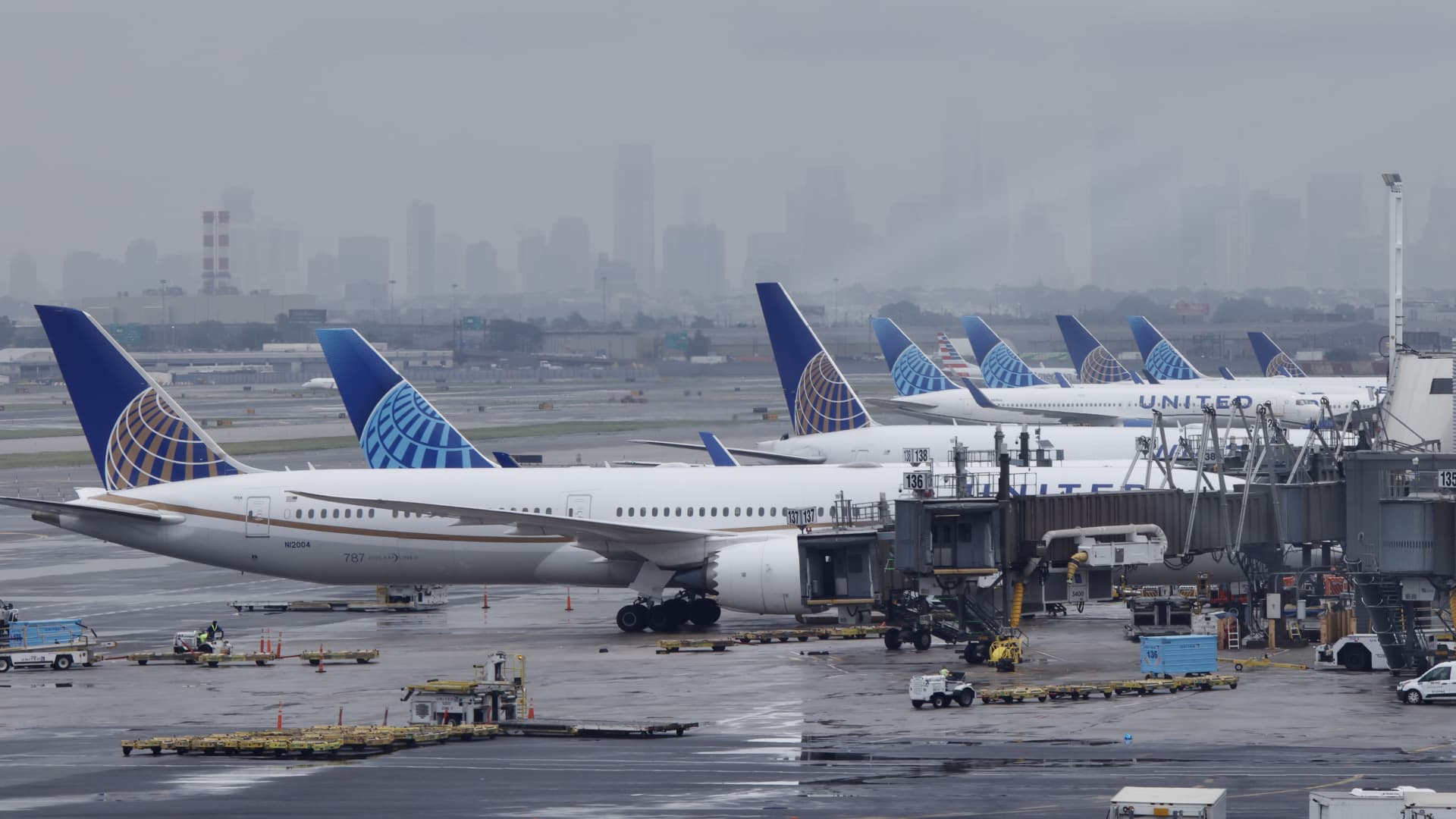
A union representing port workers in Western Canada officially began striking, an action that could have ripple effects reaching beyond the U.S.’s northern neighbor.
The International Longshore & Warehouse Union Canada’s Longshore Division announced its labor strike began in a Saturday Facebook post signed by union president Rob Ashton. More than 99% of members of the union, who support West Coast ports such as Vancouver and Prince Rupert, voted to approve the strike last month. Notice of the strike came Wednesday.
“The ILWU Canada Longshore Division has not taken this decision lightly, but for the future of our workforce we had to take this step,” Ashton said in the post. “We are still hopeful a settlement will be reached through FREE Collective Bargaining!”
The union has been open to bargaining since February with the British Columbia Maritime Employers Association, which represents port owners, and remains ready to continue working on a contract, Ashton added.
The employers association, known as the BCMEA, said in a statement it has worked to “advance proposals and positions in good faith, with the objective of achieving a fair deal at the table.” It noted the role of federal mediators and said it was open to “any” solution that can get the parties to a balanced agreement, including a mediated arbitration process.
Cruises remain able to sail and bulk grain is moving, but containerized grain is not. Canadian labor minister Seamus O’Regan Jr. tweeted seemingly in support of continued negotiations between the two groups, noting that “the best deals for both parties are reached at the table.”
The two parties are at odds over issues including automation, the use of contract work and the cost of living for workers. Two mediators appointed by the Canadian government oversaw discussions that ran through the end of May. Those discussions were followed by a so-called cooling-off period between the two groups.
A strike in the western ports occurring around holidays in both the U.S. and Canada could result in impacts on the American economy, industry followers say. The Port of Vancouver and Port of Prince Rupert are popular destinations for U.S. trade because these ports are among the major ports of call for goods arriving from Asia. Some logistics managers have told CNBC that rail service out of those ports is a lot faster than going through the port of Seattle or Tacoma.
The International Longshoremen’s Association said it won’t take diverted cargo from ports with striking workers, while the head of the International Longshore and Warehouse Union, which represents West Coast port workers in the U.S., made a statement of solidarity with the Canadian union but did not mention any specific action.
The strike could lead to congestion in these ports with longshoremen unable to unload vessels. Congestion can turn into backlogs and lead to delayed pickups from terminals, which can then lead to late fees that are often passed on to consumers — a situation similar to what occurred during the pandemic.
“With the Canadian holiday and July Fourth holidays, the volume of containers moving are lighter than normal but now vessels are not being worked because of the strike,” said Paul Brashire, vice president of drayage and intermodal at ITS Logistics. “If this strike continues into the middle of next week, it will impact congestion in the coming weeks at Chicago and Detroit rail terminals because of the amount of containers that would have built up and eventually moved to those rail terminals.”
The Canadian ports handle nearly $225 billion in cargo each year, according to estimates, with items spanning industries such as home goods, electronics and apparel transported by rail. Approximately 15% of consumer trade going through the Port of Vancouver is headed to or coming from the U.S., according to port authority data. Around two-thirds of containerized import volume going to the Port of Prince Rupert are headed to the U.S., port data shows.
Three Class 1 railways operate at these ports: CN, Canadian Pacific and BNSF, a subsidiary of Berkshire Hathaway. In an email to CNBC, BNSF said it had no comment on a strike impact. CN could not be immediately reached for comment.
In a CPKC customer advisory issued Wednesday, the railway said: “The work stoppage related to this notice could impact port operations in British Columbia. At this time, we do not anticipate any significant service interruptions to result from this work stoppage and, as such, CPKC has not initiated embargoes related to a potential service interruption but we are closely monitoring developments to evaluate any impact to shipments on CPKC’s network. We will provide updates as necessary.”
Steve Lamar, CEO of the American Apparel and Footwear Association, told CNBC that the “fragile and recovering supply chains cannot tolerate a strike,” while urging the Canadian government to help keep parties at the table.


